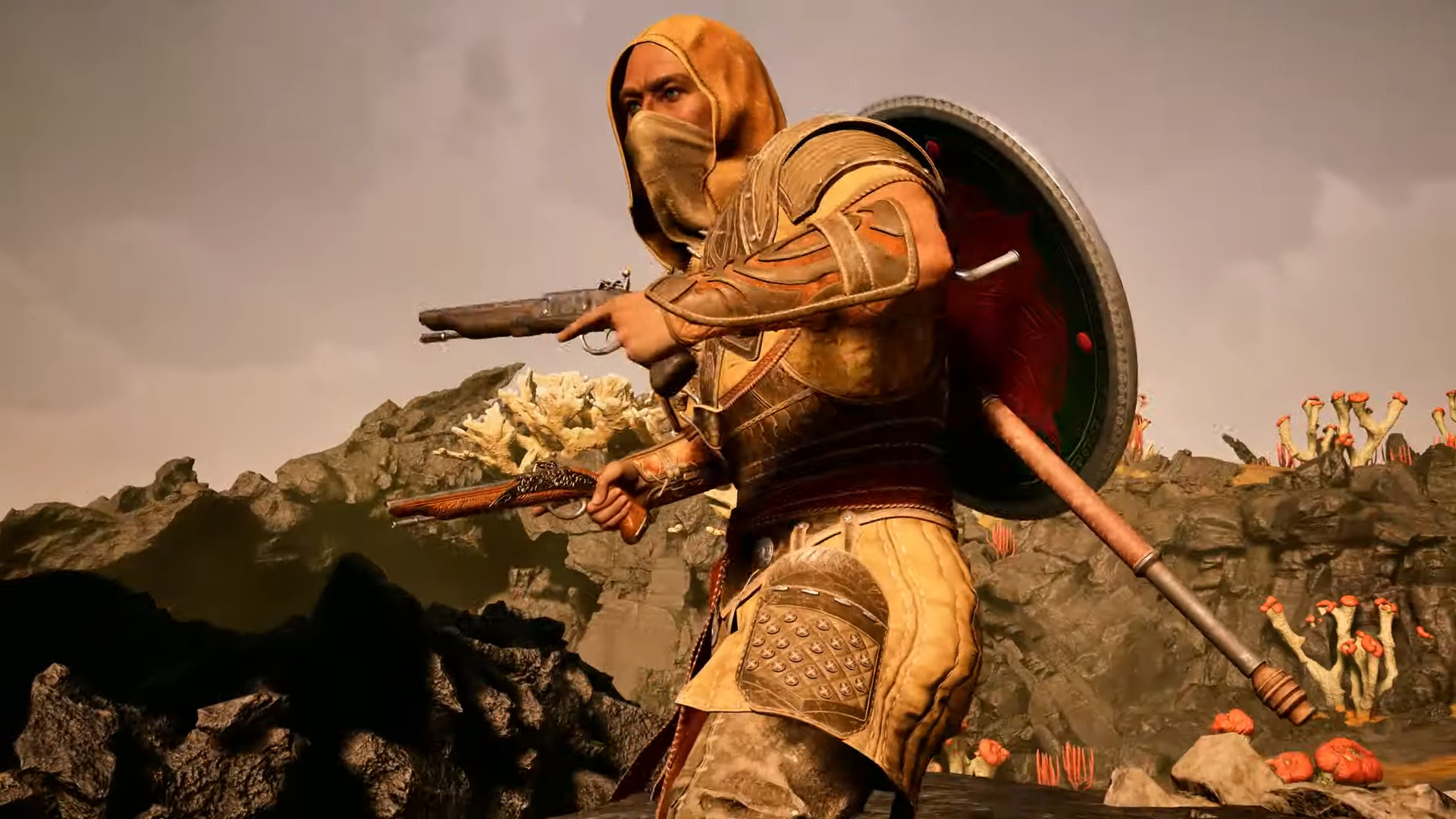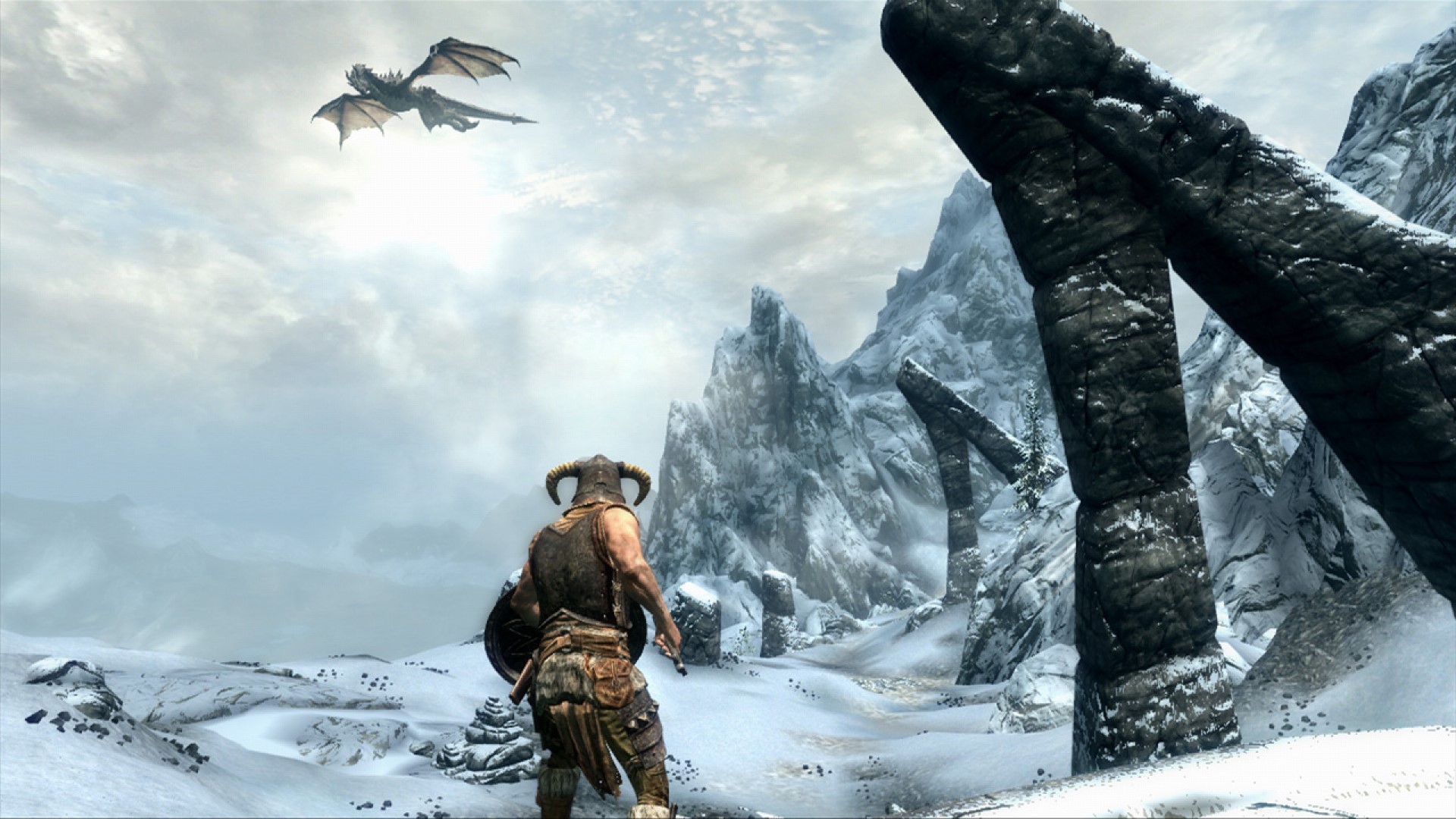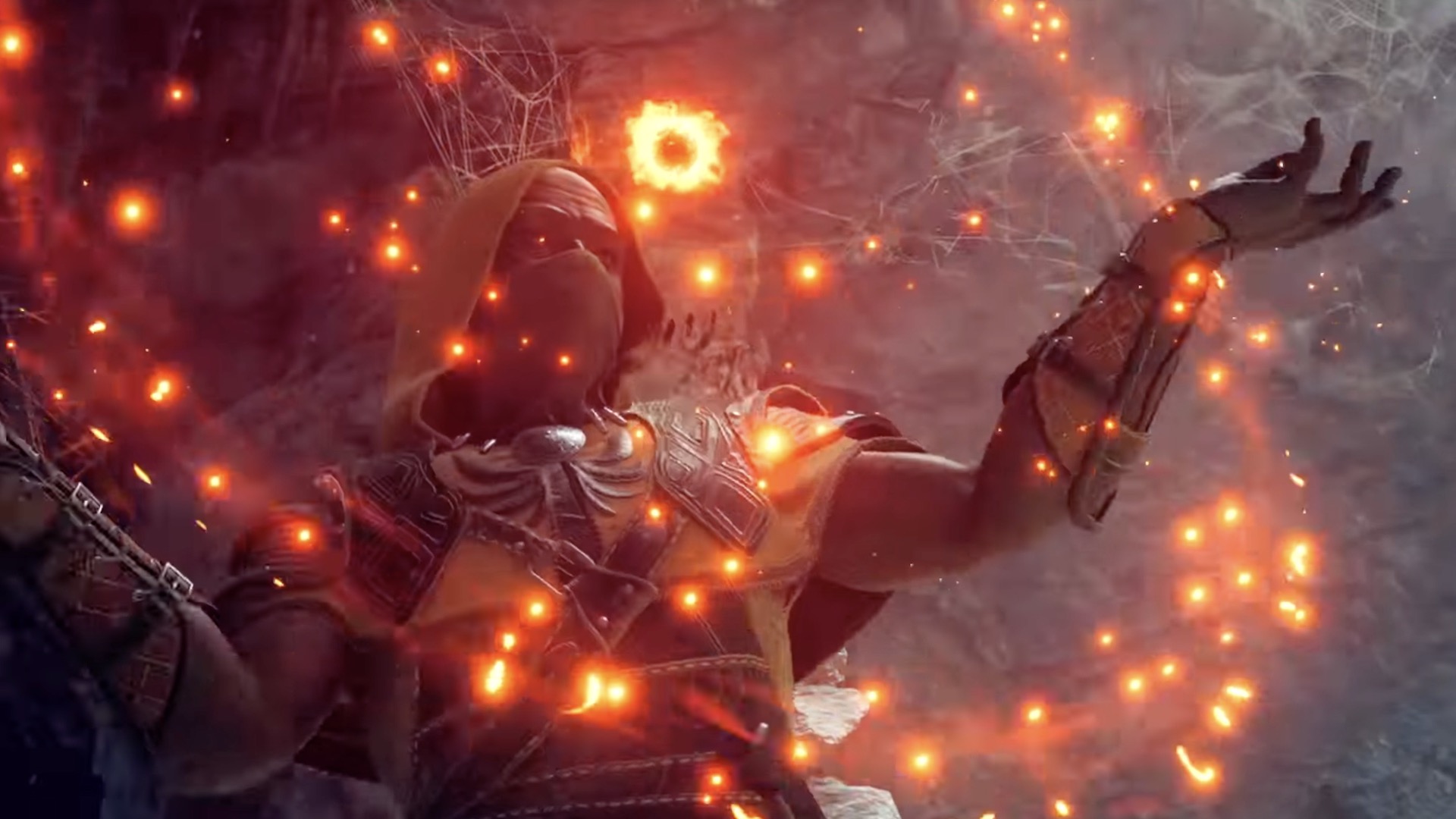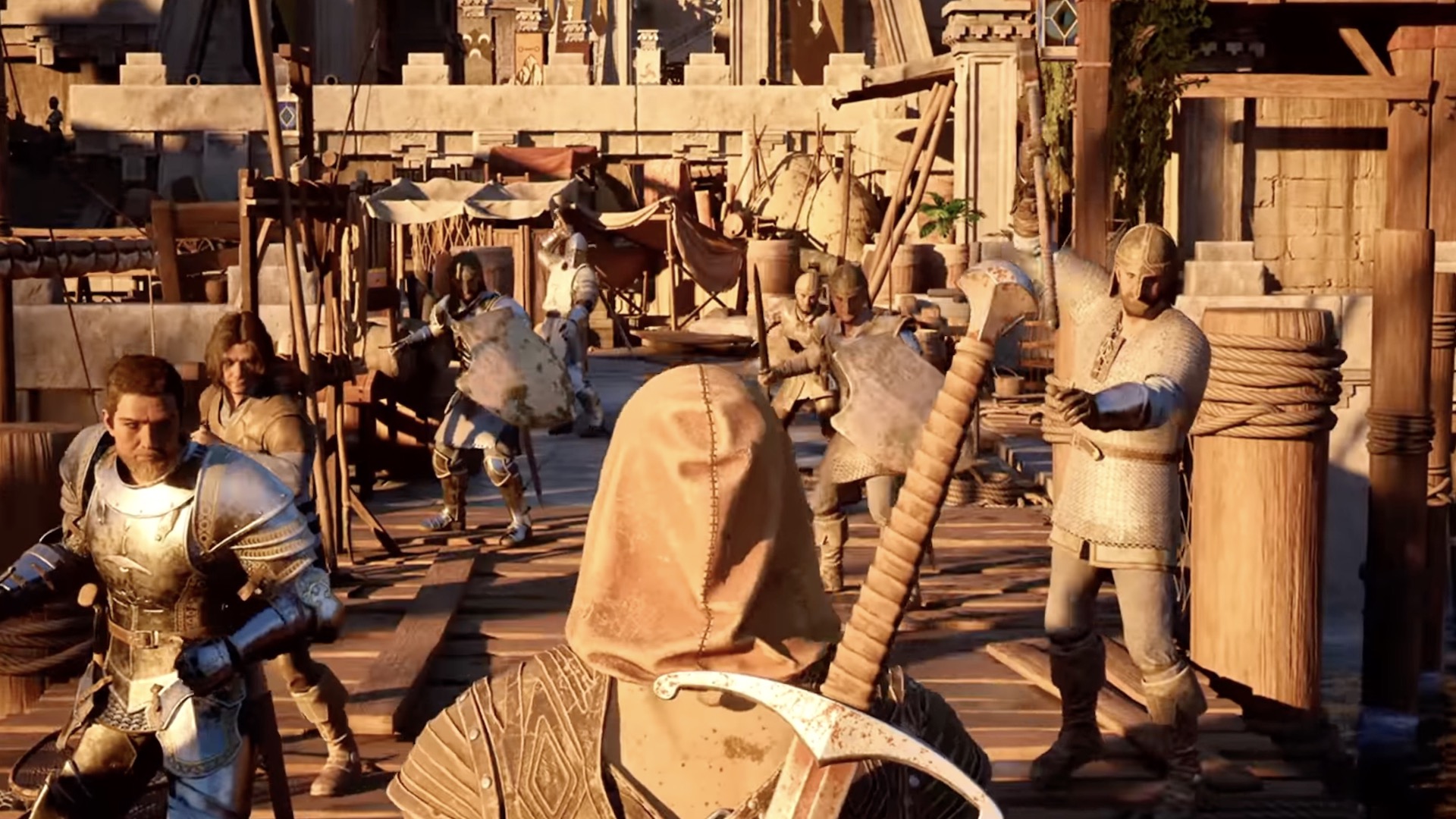Don’t be fooled by Avowed’s dull-looking combat, Obsidian’s RPG has the makings of greatness
A means to an end

As a die-hard fan of role-playing games (RPGs), I was excited to see Avowed at the Xbox Developer_Direct presentation on January 18. While the nearly eight minutes of preview footage was promising when it came to selling the scale of the game’s fantasy setting, I wasn’t alone in feeling underwhelmed by the combat on display - it felt dull, clunky, and flat.
The animations are slick but the weapons on offer don’t look heavy or responsive. The pistols, especially, seem to fire more like pop guns than actual black powder weapons.
A cursory look at the Avowed subreddit shows that the game’s combat is already proving a divisive topic. “Plenty of people pointed out that the combat looked off,” reads a recent post from Reddit user SemirAC. Just search for the word ‘combat’ on the subreddit and you’ll see the discussion for yourself. While it’s not been universally agreed that the combat previewed in the footage was lackluster, it's clear that the Developer_Direct showing has divided fans.
However, this debate got me thinking more laterally about my expectations for the RPG. In a story-driven game from veteran developers Obsidian Entertainment, is it even necessary for the combat to be ‘good’? What if strong writing and immersive worldbuilding alone are enough to give RPG fans the experience we crave?
Responsible for Fallout: New Vegas, The Outer Worlds, Pentiment, and The Pillars of Eternity series, Obsidian Entertainment has a tradition of excellent writing and storytelling. Conversely, none of these games are remembered for their combat systems. The beloved post-apocalyptic hellscape of Fallout: New Vegas is remembered for its diverse factions and emphasis on player agency, not its flat gunplay. Where else can you choose to side with a mummified libertarian businessman against an army of Roman Empire cosplayers, only to betray him at the last minute with your horde of sycophantic robots? Against such impressive antics, the game’s mediocre combat melts away, eclipsed in your memory by recollections of corrupt leaders, political intrigue, and dark secrets.
Should Avowed be able to capture some of this magic, discussion surrounding the game’s combat will pushed to the margins, in favor of the game’s politics, characters, and storytelling.
Why do we slay the dragon?

In any of the best story games, it’s ideal for each combat setpiece to serve the narrative, even if it's only in a small or subtle way. Different contexts give battles different meanings. Take The Elder Scrolls 5: Skyrim. In Bethesda’s open-world fantasy RPG, the opening chapters build up to a climactic showdown between the player character and a dragon. It feels like a dramatic opportunity for the protagonist to seize their destiny as the Dragonborn - a prophesied hero. That first dragon kill feels powerful - a stepping stone on the road to something greater.
Get daily insight, inspiration and deals in your inbox
Sign up for breaking news, reviews, opinion, top tech deals, and more.
However, following that initial victory, Dragons will constantly assail you throughout the rest of the game as you travel its expansive lands. Going out to grab some herbs? Dragon. Need to pop to the shops in a neighboring town? Also dragon. By the time you’ve killed your tenth flying lizard, the battles take on a routine quality robbing them of their impact.

Without a proper framing device, even a fight with a giant fire-breathing monster can feel aimless and by the numbers.
This is something that Obsidian has the power to avoid with Avowed. The studio can ground the game’s more significant battles in a wider story, giving Avowed’s scraps a meaning of their own. Mediocre combat mechanics matter a lot less when you’re thinking not of the attack itself, but what you’re attacking for.
Baldur’s Gate 3 can tell us a lot about the virtues of this approach. While full of combat encounters, Larian Studios’ critically acclaimed fantasy RPG always grounds its battles in the wider story. They never occur randomly or just to pad things out. More often than not, a fight will start because you, the player, decide to start one. If you choose to attack the goblin encampment in Act One, the battles within become part of your ongoing story. The violent conflicts in Baldur’s Gate 3 are an expression of player agency, not something the game inflicts upon you to create the illusion of tension.
Fighting the good fight

Obsidian is poised to deliver exactly this sort of combat experience thanks not only to its strong tradition of story-driven games but also because Avowed directly builds on previous projects, taking place in a universe that Obsidian concocted for earlier games.
Much like Fallout: New Vegas before it, Avowed also takes place in an expansive, pre-established setting. Obsidian’s Pillars of Eternity series of isometric Baldur’s Gate-style RPGs established a rich fantasy universe and provides a compelling backdrop against which the studio can construct its latest project.
Fleshed out in Pillars of Eternity and Pillars of Eternity 2: Deadfire, Eora has a pantheon of gods so prone to infighting that they give the Ancient Greeks a run for their money. There's also an overarching conflict between a range of greedy colonial powers and plenty of folks caught in the middle who are just trying to live their lives. There's a lot to play with, here. The established setting gives Obsidian a deep wealth of potential justifications for conflict which will help them make the battles in Avowed feel more meaningful.
Avowed also takes place in an expansive, pre-established setting
We know that Avowed will be set in The Living Lands, a large and contested island to the north of Eora. We also know that you’ll be playing a representative of the Aedyr Empire and, while you’re ostensibly there to investigate a magical plague, you’ll no doubt be pressured to advance the Empire’s interests while you’re out there, too. Already, this presents a huge scope for meaningful drama and conflict. Do you toe the line and do what the Empire wants? Do you turn on Aedyr? Do you try to play multiple sides?
These are the sorts of themes and conflicts upon which great RPGs are built. While Obsidian will still need to deliver on the full potential of this groundwork, even should the studio be only partially successful, there will be more than enough storytelling to distract me from dull and unengaging combat mechanics. It matters less that your pistol feels like a pop gun if you’re firing it for reasons you care about.
Looking for narrative-driven games to play in the meantime? Our lists of the best RPGs and best single–player games have what you’re looking for.

An editor and freelance journalist, Cat Bussell has been writing about video games for more than four years and, frankly, she’s developed a taste for it. As seen on TechRadar, Technopedia, The Gamer, Wargamer, and SUPERJUMP, Cat’s reviews, features, and guides are lovingly curated for your reading pleasure.
A Cambridge graduate, recovering bartender, and Cloud Strife enjoyer, Cat’s foremost mission is to bring you the best coverage she can, whether that’s through helpful guides, even-handed reviews, or thought-provoking features. She’s interviewed indie darlings, triple-A greats, and legendary voice actors, all to help you get closer to the action. When she’s not writing, Cat can be found sticking her neck into a fresh RPG or running yet another Dungeons & Dragons game.